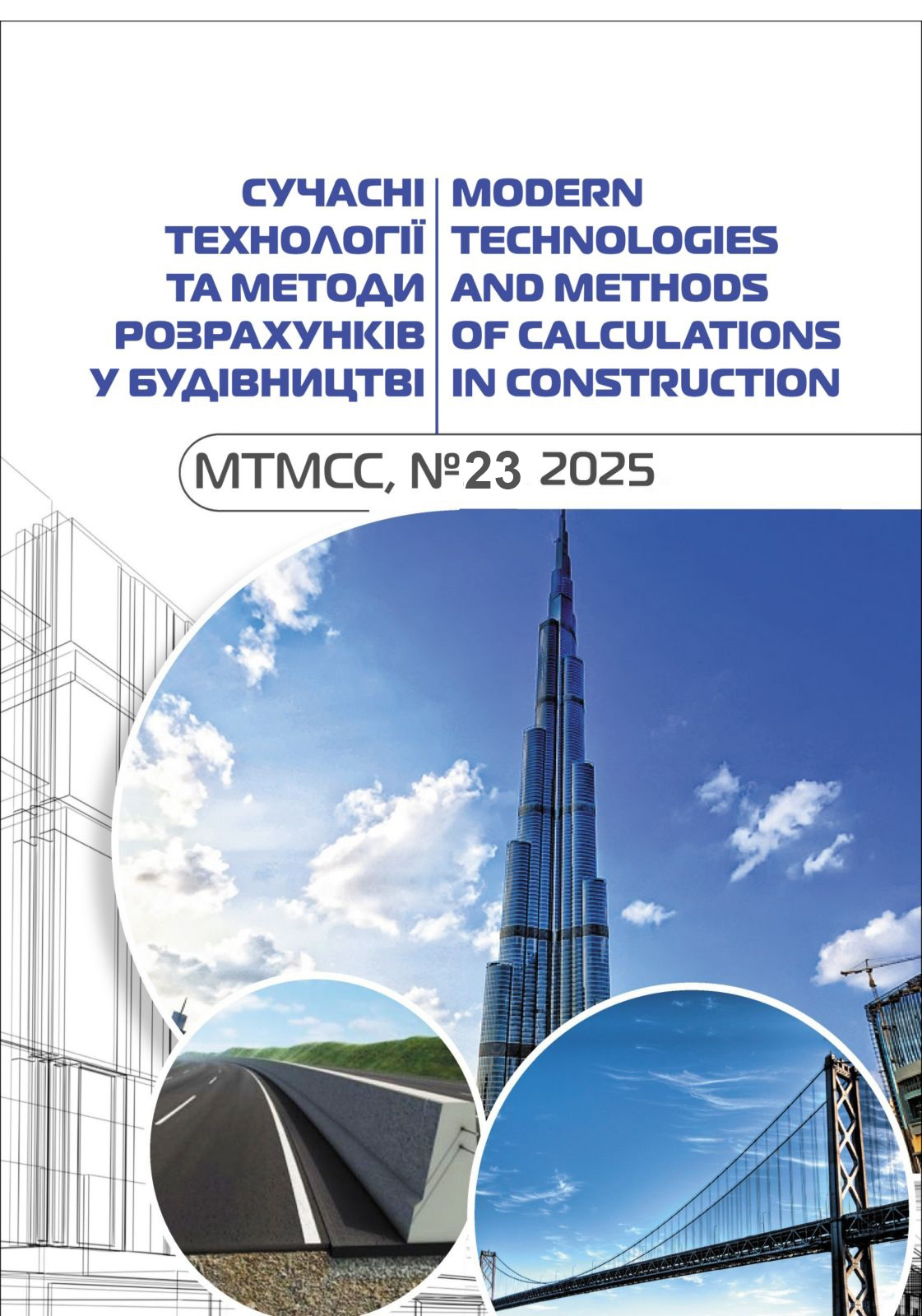Analytical and theoretical principles of optimizing organizational construction processes
Abstract
In the current conditions of the construction industry, there is an increasing need for a comprehensive transformation of organizational processes, which is due to the increasing complexity of infrastructure projects, uneven distribution of resources, market dynamics, and increased requirements for the quality and timing of work. The results of the analysis of the development of the construction market of Ukraine for 2017–2022 showed the presence of several structural imbalances, in particular between the planned volumes of construction and installation works and actual implementation, and also revealed regional asymmetry of demand, which is due to socio-economic factors.
In conditions of such instability, effective management of construction activities requires the use of mathematical methods that can take into account the multifactorial nature of processes. One of the promising areas for improving planning and coordination in construction is the use of mathematical modeling, in particular, the algorithmic-criteria approach to parametric optimization. This approach allows for a formal analysis of the dependencies between the main indicators of project implementation: time characteristics, logistics of material supply, fixed-interval inventories, cost of work, transportation costs, and volumes of construction and installation works. At the same time, mathematical modeling contributes not only to increasing the accuracy of calculations but also makes it possible to determine optimal solutions in conditions of limited resources and a changing external environment. Thanks to a systematic approach to analysis and planning, it becomes possible to more effectively manage the interaction between contracting structures, predict the results of project implementation, and reduce the risks of their failure.
Thus, the study's relevance lies in the need to develop effective mathematical tools for optimizing organizational and technological processes in construction, based on a combination of methods of applied mathematics, systems analysis, and a criteria-based approach to construction production management.








